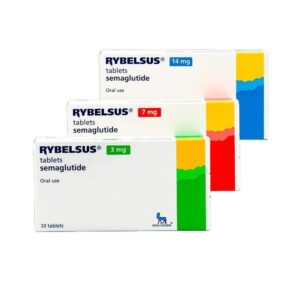What is Belviq?
Belviq affects chemical signals in the brain that control appetite. Lorcaserin works by helping you feel full with smaller meals.
Belviq is used together with diet and exercise to treat obesity.
Belviq is sometimes used to treat obesity that may be related to diabetes, high cholesterol, or high blood pressure.
Belviq will not treat any underlying health condition (such as heart disease, diabetes, high blood pressure). Keep taking any other medications your doctor has prescribed to treat these conditions.
Warnings
Do not use Belviq if you are pregnant. Weight loss during pregnancy can harm an unborn baby, even if you are overweight.
Serious drug interactions can occur when certain medicines are used together with lorcaserin. Tell each of your healthcare providers about all medicines you use now, and any medicine you start or stop using.
Before you take Belviq, tell your doctor if you have diabetes, congestive heart failure, a heart valve disorder, sickle cell anemia, leukemia or myeloma, kidney or liver disease, or a physical deformity of the penis (such as Peyronie’s disease).
Belviq may be habit-forming and should be used only by the person for whom it was prescribed. Keep the medication in a secure place where others cannot get to it.
Tell your doctor if you do not lose at least 5% of your starting weight after taking the medication for 12 weeks.
Belviq is only part of a complete program of treatment that also includes diet, exercise, weight control, and possibly testing your blood sugar.
Before taking this medicine
You should not use Belviq if you are allergic to lorcaserin.
Do not use lorcaserin if you are pregnant. Weight loss during pregnancy can harm an unborn baby, even if you are overweight. Tell your doctor right away if you become pregnant during treatment.
To make sure lorcaserin is safe for you, tell your doctor if you have ever had:
- diabetes;
- congestive heart failure;
- a heart valve disorder;
- slow heartbeats or heart block (especially 2nd or 3rd degree “AV block”);
- sickle cell anemia;
- leukemia or myeloma;
- kidney or liver disease; or
- a physical deformity of the penis (such as Peyronie’s disease).
In clinical studies, more people taking Belviq were diagnosed with cancer compared with people taking an inactive placebo. It is not clear whether lorcaserin actually causes cancer. Talk to your doctor about your own cancer risk while taking Belviq.
You should not breastfeed while using lorcaserin.
Belviq is not approved for use by anyone younger than 18 years old.
How should I take Belviq?
Take Belviq exactly as prescribed by your doctor. Follow all directions on your prescription label. Do not take this medicine in larger or smaller amounts or for longer than recommended.
The regular tablet is usually taken 2 times per day. The extended-release tablet is taken only once per day. Follow your doctor’s instructions.
Swallow the extended-release tablet whole and do not crush, chew, or break it.
You may take Belviq with or without food.
You should lose at least 5% of your starting weight during the first 12 weeks of taking Belviq and eating a low calorie diet. Call your doctor if you do not lose at least 5% of your starting weight after taking the medicine for 12 weeks.
Belviq is only part of a complete program of treatment that also includes diet, exercise, weight control, and possibly testing your blood sugar. Follow your diet, medication, and exercise routines very closely.
Do not share Belviq with another person. Keep the medication in a place where others cannot get to it.
Store at room temperature away from moisture and heat. Keep track of your medicine. You should be aware if anyone is using it improperly or without a prescription.








Reviews
There are no reviews yet.